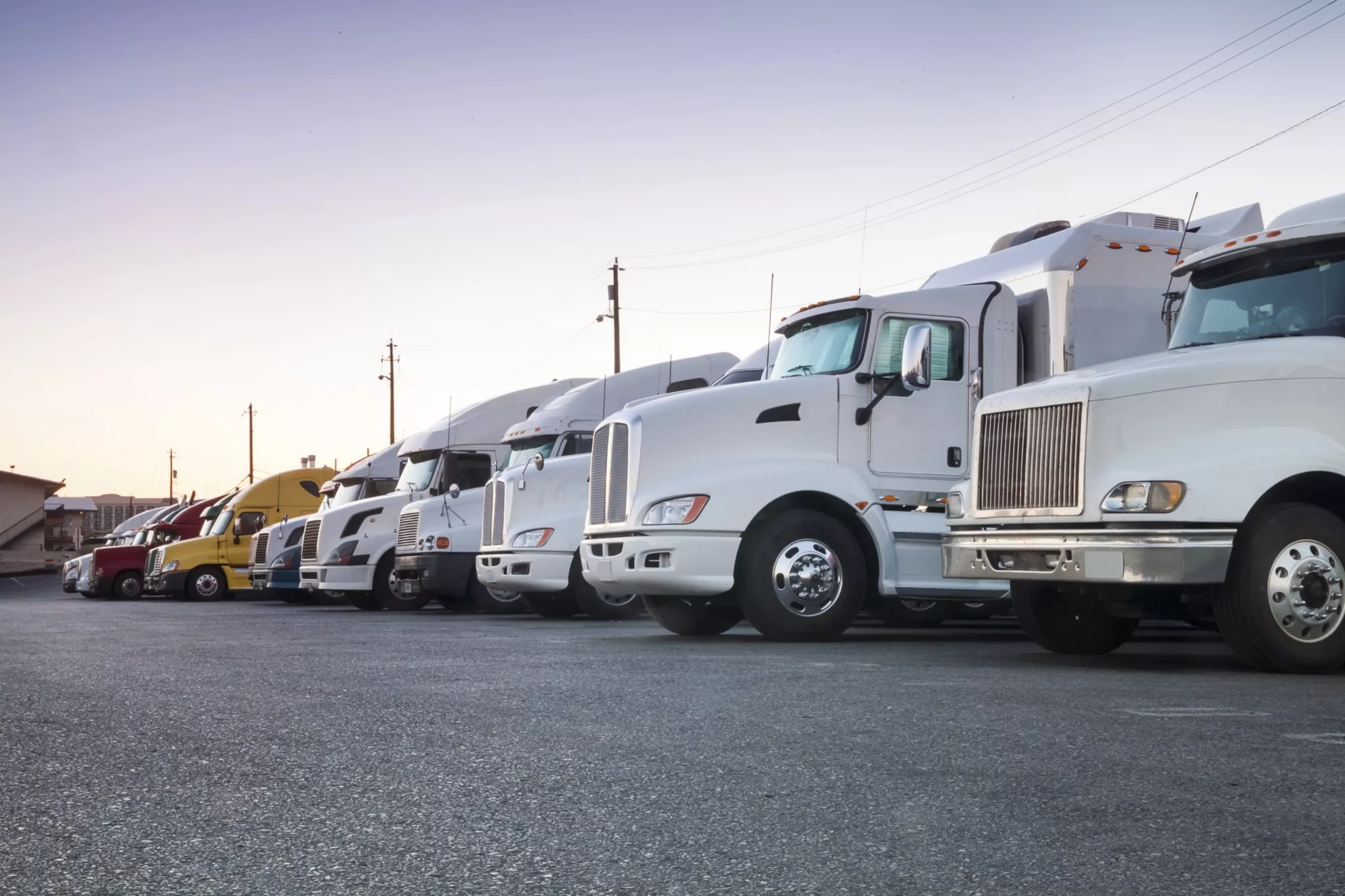Table of Content
Being a trucker, in essence, is a physical job with a great responsibility. If you want to be a trustworthy carrier or an owner-operator, keeping your fleet in working order and well-equipped is the key principle. Always having trucking tools in hand will ensure road traffic safety, help you and the other drivers perform your duties effectively, keep the products you haul safe and sound, and prevent you from various unpleasant situations. Sometimes they are even crucial for a driver’s life and health.
We all know that the freight transportation business can hardly exist without unexpected circumstances, unpredictable weather conditions, and changes in plans. Nevertheless, those may not affect you at all or have little influence if you take care of the proper truck driver equipment list. Investing in quality, reliable, and durable things to keep in your truck today may save you from finding yourself helplessly stranded in the middle of nowhere tomorrow.
By the way, we cannot imagine a modern truckers tool kit being limited by material tools only. As an advanced carrier, you’ll want digital tools to come to your assistance. For example, it is difficult to imagine the present trucking without online load boards or GPS systems. Also, you may use digital platforms to run your accounting smoothly or seek professional dispatch help from experts like Logity Dispatch.

Continue reading to see our suggestions for covering all the bases.
50 Best Tools for Truckers
1. A tool box
A quick spoiler – work instruments are going to constitute a majority of this list. Some tools are really small and likely to be lost, while others demand careful storage because they are fragile. That is why you need to consider buying a roomy container for all of these. You kill two birds with one stone obtaining a tool box. Firstly, tools are saved from possible damage caused by bumping along a bad road, and therefore, their service life is prolonged. Secondly, it is handy to keep everything you need in a particular place. It will save you and your drivers a great deal of time and energy whenever your truck needs an urgent repair.
Another practical benefit of a tool box is serving as an organizer. Lots of instruments are virtually identical visually, but variable by their sizes or functions. It is great to distinguish them promptly once an emergency occurs.
Make sure that your tool box is suitable for the volume of your tools collection, and pay attention to its rigidity. Always place the box in a safe place in your truck where it is not likely to be hit.
2. A socket set
It is a genuine rudiment of a tool set of any kind, so make sure you choose a high-quality one. A socket set includes different-sized detachable metal sockets that fit over the heads of nuts and bolts. Socket sets often come with handles and ratchets of corresponding sizes to attach the sockets and twist them to either fasten or unfasten nuts or bolts. There are myriad types and sizes in the market, depending on customers’ inquiries. Some of them are extensive and consist of versatile additional tools like extension bars and universal joints. However, if you are a regular driver without mechanic qualifications, a basic or semi-professional set will be enough for you.
3. Crescent wrenches
Crescent wrenches are also known as adjustable wrenches. This tool is at the top list of tools to have in your truck. You need to purchase wrenches of different sizes – 6’’, 8’’, and 10’’ are the most popular ones; though a 4’’ crescent wrench can also be of service when you need to approach tiny items. We also recommend getting 12’’ and 14’’ wrenches because they are appropriate ones for fixing your trailer and truck hitch.
4. Combination wrenches
A combination wrench is also a widespread tool that truckers use. They have an open end on one side and a closed, ring-shaped (the same one as box wrenches have) end on the other. The open end is useful for quickly fitting onto nuts and bolts, while the closed end provides a stronger grip, allowing you to apply more torque. Their common sizes are 7/16”, 1/2”, 9/16”, and 5/8”, and it is important to buy some extra metric fasteners along.
5. Dog bone wrenches
They are also known as double-ended wrenches or 4-way wrenches. These will likely save you trouble one day. They are flexible multi-functional instruments that are excellent at handling large bolts, nuts, or screws. Besides, dog bone wrenches are indispensable when working with hardly accessible parts of machines. Since they have multiple sockets on each side, you can sometimes substitute dog bone wrenches for crescent and combination ones!
6. A 3-lb. sledgehammer
Having a light hammer in your truck can come in handy any minute. For instance, you can release the fifth wheel with it. This tool will also help you regularly check up on tire pressure. Just slightly hit every tire and listen carefully. Ideally, all of the tires should sound identical; if they are not, you probably want to inflate the one that sounds odd.
7. A regular hammer
Even though you have got a light sledgehammer, a heavier one won’t be extra. It is a multi-purpose tool and may be particularly beneficial in winter. Try releasing frozen brakes, or knocking ice and dirt off padworks and latches. Remember to control the force you apply to the hammer, and use it only for the strong parts of your vehicle. This tool is not designed for working with delicate objects.
8. A metal dowel rod
In continuation of the topic of hauling loads during the cold half of the year, metal dowel rods are excellent at breaking off ice, snow, and hoarfrost. Same as with hammers, one needs to be extremely careful not to harm auto parts.
9. Screwdrivers
Cannot spell ‘screwdriver’ without ‘driver’, and vice versa, we cannot imagine a truck driver without this magical tool in their kit. This instrument, typically consisting of a handle and a metal rod with a special ending, is familiar even to those who have nothing to do with mechanic and repair activity. There are countless screws inside and outside a truck, here’s why you need to arm yourself with as many sizes and types of screwdrivers. The main kinds are called slotted screwdrivers, Phillips-head screwdrivers, Hex screwdrivers, and Torx screwdrivers. You may also consider buying one or a few tools with interchangeable rods. It will probably save a certain sum of money, and surely space in your tool box.
10. Pilers
You should also pack different pliers so that you can conduct a repair at any level. 5’’ ones are generally used for break-downs quickly fixable, and bigger pliers – for more time-consuming cases. Needle-nose pliers, also known as long-nose pliers, are a useful tool type that can handle tight spaces and extremely small elements.
11. Vice grips
These are sometimes called Vise-Grips, Mole wrenches, or Mole grips. They have a pair of jaws that can be adjusted to different widths and locked into position, allowing them to securely grasp onto bolts, nuts, pipes, etc. Vise grips are commonly used in situations where a conventional wrench or pliers may not provide enough grip or where you need to hold something very firmly while working on it. They are also super handy at bending wires, removing and loosening fasteners, and cinching leaky pipes.
12. A wire cutter and electrical tape
Every driver will agree that electrical wires are prone to degrade into bald areas. To fix the issue, you will need to fetch a wire cutter and some electrical (also known as insulating) tape from your tool box. Of course, they are just a temporary solution, and better if you roll to the nearest truck shop to get new wires.
13. A crowbar
This tool is also called a wrecking bar, or pry bar. A crowbar is another multi-functional device you’ll want to keep on the road. It may be used to pry apart hard materials, loosen joints and fasteners, dismantle fixtures, extract nails, break down pallets, and so on.
14. Heat shrink tubing or tape
A common informal term for them is heatshrink. It is used for the environmental protection of wires and prevents them from abrasion. Also, it can be utilized for electrical repair purposes, especially to tie them together and create cable entry seals.
15. A heavy-duty box knife
Also known as a heavy-duty box cutter or a utility knife, the tool can be far more useful than you think! Their ‘competence’ isn’t limited to unpacking cardboard boxes; they can cut through various materials such as plastic, carpet, leather, and even light-duty metals. The trick is not to skimp on the knife. It is better to invest in a costly one from a trusted manufacturer than buy a cheap one that will want a replacement in a few months. Also, keep extra blades in reserve.
16. Jumper cables
They are also known as booster cables and are used to jump-start a vehicle with a dead or low battery. It is always stressful once your battery hits a low point while you are on your way. To avoid delays that will cost you lots of money and hinder your services to a shipper or broker, it is a wise decision to always have jumper cables in a truck.
17. Extra fuses
Fuses are protective devices for a vehicle’s electrical system. They are designed to prevent electrical circuits from overloading and causing damage to components or even fires. They are a crucial part of the electrical system in your truck, however, they are fragile and tend to blow frequently. That is why extra ones are never really extra. Fortunately, they don’t cost the earth, so restocking them regularly won’t bankrupt you.
18. A tire air pressure gauge
It goes without saying that controlling your tire air pressure contributes a lot to road safety. If tires are underinflated, not only do they spoil the overall performance of your vehicle, prolong brake distances, and increase fuel consumption, but pose a threat of blowouts and road accidents. Before hitting a road, purchase a precise air pressure gauge, and check on the indexes at least once every day.
19. A tire depth gauge
Similarly, the importance of proper tire depth is beyond question. Firstly, monitoring the tire depth and changing tires in time contributes to road safety, and secondly, it is an object of legal regulations. Do not forget to measure the depth regularly to avoid fines and other unpleasant situations.
20. Duct tape
Duct tape is a cloth- or scrim-backed tape, usually of a silver color, marked by strong adhesiveness. It is water-resistant and compatible with a wide range of materials and surfaces. Besides, it is surprisingly inexpensive! Duct tape is a versatile tool that can be used, for example, to temporarily splice damaged wires, cables, or other ropes.
21. Hoses and belts
Unfortunately, belts, hoses, and other elastic items aren’t always made to last. We recommend always having some extras near at hand. You do not want to lose heaps of time and money due to the lack of such a small detail.
22. A mini LED-flashlight
Here and in the next several list items we are going to mention the sources of light we think every trucker needs to carry. We start with a small flashlight because a cell phone flashlight cannot always substitute for it. You can perform versatile tasks with a single flashlight – do your everyday circle check of a truck, and simply use it for your personal needs outside working hours.
23. A cranking flashlight
Another common spread term for this lamp is a mechanically powered flashlight. The principle of its work is the following: the light is powered by a battery that is recharged by a generator turned by a hand crank on the flashlight. 1 minute of cranking ensures about 30 to 60 minutes of light. It is therefore a tool independent of batteries which will not let you down under any circumstances.
24. A headlamp
When it comes to demanding repairs that take some time, it is important to have both your hands free. Moreover, a headlamp has one more considerable advantage — it provides light everywhere you go. It means you will be as flexible as possible in your movements, especially if you need to constantly fetch something from your truck and bring it to the trailer, or vice versa.
25. An 18” Maglite
It is also a great idea to equip yourself with larger sources of light. 18’’ Maglite is a professional reliable tool that can be used either when fixing something in the dead of night, or even alert passersby about your emergency stop.
26. A work lamp
This is also a huge source of light that can be fixed or hung with a rope over the place where you have to work on something.
27. Extra batteries
Almost all of the sources of light require batteries, and the batteries’ life service may sometimes come to an end in the least appropriate moment. We know how frustrating it feels, and that’s why we insist on having functional battery replacements no matter what.
28. Zip ties
Continuing the topic of tiny, but crucial things, we cannot but mention zip ties (also called cable ties). They are handy not only for bundling wires together but also for holding larger objects together. You can construct a longer line with several zip ties, and, for instance, fix some of your belongings in the truck so that they do not slip away during a trip.
29. A first aid kit
Even though we placed it in the middle of the list, a first aid kit is one of the vital elements in a truck. The reason is not just merely legislative. A regular first aid kit contains bandages, adhesive tape, antiseptic wipes, gauze pads, and pain relievers. Extensive versions may also include CPR masks, emergency blankets, and triangular bandages. All of these will come in handy if any accident occurs. Even though there are health issues that cannot be completely neutralized by the contents of a first aid kit, immediate primary medical assistance sometimes saves lives.
30. A lighter
A simple lighter can be useful for sealing frayed edges of rope or nylon straps, melting wax for lubricating zippers or hinges, or even temporarily heating the metal to make it more pliable for minor repairs. It is an extremely budget tool that performs various tasks and will also help you in your everyday routine.
31. An extra cell phone
Having a spare cell phone may seem unnecessary for a person who is based in a particular settlement (however, it is a matter of dispute). If you are a traveler or a truck driver, always being in touch with the world is ultimately important. Firstly, if anything happens to your main phone, you won’t be able to contact your dispatch or broker. Secondly, you always need to be ready to make an emergency call.
32. A spare jug of oil
Since truckers cover long distances, it is crucial to have some engine oil in reserve. Once a leak occurs, you’ll want to have enough of the substance to reach the nearest repair shop. Also, you can maintain the oil level to ensure engine health and performance.
33. A spare gallon of coolant
Same here, having enough antifreeze is essential for the proper serviceability of your engine. If you neglect this rule, it may even lead to breakdowns and road accidents.
34. Windshield washer fluid
As a driver, you’ll always want to have excellent road visibility. Windshields are constantly affected by the environment, insects, and weather conditions. Wiping your windshield regularly will prevent serious stains from appearing. The fluid also serves as a lubricant for the wiper blade mechanism and prolongs its service life.
35. Cleanser and disinfectant
Cleaning your truck and trailer is crucial in the trucking business. Since trucks are enormous vehicles, you’ll want to stock yourself with a sufficient amount of cleaning products. It is equally important for your health and well-being, and for providing quality service to your clients. No one wants to receive dirty products with side odors.
36. WD-40 penetrating oil
It is an ultra-useful product to keep in a truck. It has lubricant properties, lessens corrosion by displacing water from different auto parts, and dissolves and removes dirt or adhesives. It is also good at silencing squeaky connections. You will never regret investing in WD-40.
37. Silicone
Another simple yet very multifunctional product. It is a great sealant and also protects your freight from minor leaks. It is durable, heat-resistant, and not exposed to most chemicals’ influence.
38. Safety glasses
Let’s now talk about your safety as a human being when driving a truck. We advise you to purchase specialized protective glasses, as you never know what might happen during a trip or repair. You’ll want to protect your eyes from dust, flying debris, and chemical fumes. It will be great if they have UV protection because being a trucker means being exposed to the sun for a long time.
39. Gloves
When we talk about glasses, remember that having only one pair is not enough. Invest in thermal gloves to protect your hands from cold, a resistant pair of gloves for repairs, and leather ones for windshield cleaning, oil checks, and fueling.
40. A lumbar support cushion
Driving a truck implies sitting in a static position a lot. You will probably not notice it immediately, but months and years of this activity take their toll. To reduce spinal pains and damage, we recommend investing in lumbar support cushions. It takes pressure off your lower back and makes you feel more comfortable on the run.
41. Rags
The more pieces of cloth you have in your truck, the better. You need to have microfiber towels, a cloth for glass cleaning, some stick rags for major contamination, and regular ones just in case you need to wipe off unexpected leaks, grease stains, or just water spills.
42. Emergency rations
We all understand that there are situations when food shops are either too far away or even inaccessible due to being stranded on the road and waiting for help. You always need to keep some non-perishable food and drink stocked in your truck.
43. A signal vest
Also known as a reflective safety vest, it is a neon-colored waistcoat with reflective strips. It is important to note that wearing the vest while repairing your truck or being on an emergency stop is regulated by law. Aside from legislative requirements, it is a matter of your safety because it makes you more visible.
44. A fire extinguisher
It goes without saying how crucial it is to have the means to put out or localize a fire. As a truck driver, you’ll probably need more than one fire extinguisher but don’t skimp on them. This tool may save you thousands of dollars, and your own health and life.
45. A truck parking tool
Let’s close the list with some non-physical tools that will also make your life easier. Finding a proper place to park your vehicle is easier said than done. Not all the spots allow truck parking, not every road has a comfortable driveway to parking or a facility you need to reach. However, you can save lots of time, fuel, and energy by installing a mobile app. Not only can you learn about where you can park, but even reserve a place!
46. A GPS device
Many brokers and shippers require tracking, and you’ll want to know your exact location at the moment yourself. There is a wide choice of GPS tools, such as portable GPS navigation devices, cell phone GPS apps, handheld GPS units, and many more. We are 100% certain that operating a freight transportation business is impossible without GPS nowadays.
47. Load board
Modern trucking chiefly features finding loads on the Internet. It is understandable that if you own a small or a larger fleet, you typically count on your dispatch team. However, not only do owner-operators need load boards, you should have them even if you cooperate with dispatch.
Firstly, there is always a chance of finding the right load yourself faster. Secondly, sometimes you’ll want to check the suggested load details yourself.
48. Market data
Trucking is a fast-paced field where you should keep up with the trends and forecasts. To get insight into the current prices, demand-to-supply ratio, and the most profitable types of loads, you can do your research. Also, you may choose to read information on resources like DAT RateView Analysis which professionally gathers and analyzes all the key tendencies.
49. A freight factoring service
Most owner-operators and carriers decide to cooperate with experienced factoring companies. Although you pay some interest, it will optimize your cash flow, help receive payments quicker, and save you valuable time. By entrusting your finances to a factoring company, you become more concentrated on your duties.
50. A qualified dispatch team
If you are not planning to build your dispatch team, but being an owner-operator is not an option for you either, you may consider establishing cooperation with a trusted team. We, Logity Dispatch, offer excellent dispatch service and are client- and result-oriented. Contact us for cooperation!
Conclusion
A set of tools can appear whopping, especially when you learn about it theoretically. Although we described fifty basic tools for truckers in the article, the actual amount of them may vary significantly and hit 3-digit numbers. Nevertheless, it is easier to organize a decent toolkit in real life. Write down an approximate list of tools you need at the moment (do not hesitate to take ideas from the list above), then just visit a specialized auto store or do online shopping. Fortunately, the choice of tool is boundless these days.
Start with the most basic and multi-functional tools plus those required by law and regulation. No need to buy half a store at once, but remember to regularly revisit and restock the products you have got. Once you start making more money, consider investing in more expensive and durable tools than before. Growing and developing as a carrier includes expanding your equipment arsenal. Since you reap what you saw, your efforts will work out in the long run.







